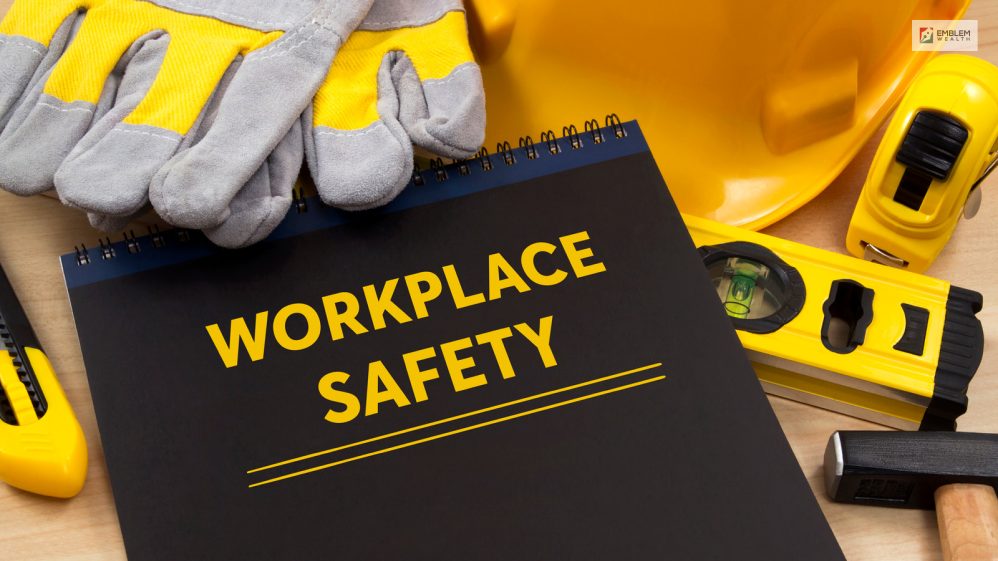Shocking Truth: The Hidden Dangers Of Your 9-to-5!!

Workplaces can be dangerous environments, and there can be hazards at every turn. Having robust health and safety measures is essential for every business, as the implications can be far-reaching if you don’t.
What Is Occupational Health?
The concept of occupational health is known for being a public health issue that mainly aims to promote and maintain the overall health of both workers and employers. The term primarily advocates for the employee’s health, monitoring their safety practices while mitigating their utmost risks.
The aim is simple: to provide education on maintaining a safe and secure workplace. The main objectives of occupational health include:
The promotion and maintenance of the health and working capacity of workers.
Better improvement of the working conditions and environment to ensure safe and healthy environments.
Development of work organizations and cultures that positively reflect the organization’s overall value.
Why Is Health And Safety Important?
Health and safety plays a vital role in the workplace for a number of different reasons:
Keeps employees and visitors safe,
Fewer injuries, which leads to better productivity,
Improve the image of the company,
Minimise legal liabilities.
In the UK, 1.7 million workers suffered a work-related illness in 2020/2021, which is estimated to cost the economy £16.2 billion. Whilst the impact on individual businesses is minor, there will still be a relative impact on their productivity, profits, and employee administration.
What Was The Status Of Workplace Safety Laws In 1900?
The workplace safety laws of 1900 did not favor the workers. The fun fact is that all states had safety laws, but no one bothered to apply them. As a result, the workers faced some significant issues while conducting the operations.
This includes:
Mining: Almost 300 miners were killed each and every year.
Railroads: There were common injuries and fatalities, which included boiler explosions and falls from trains or train wrecks.
Factories: The workers faced hazards from all types of power tools, toxic gas, and steam engines.
The Safety First movement started in the early 20th Century as the mining, manufacturing, amd railroad industries began to grow.
What Are The UK Health And Safety Regulations?
For management, the main piece of legislation to follow is The Management of Health and Safety at Work Regulations 1999. This outlines how an employer should assess risks, provide correct information and training on health and safety, and have a written health and safety policy.
When it comes to your physical workplace environment, there are guidelines laid out in The Workplace (Health, Safety and Welfare) Regulations 1992. This focuses on adequate lighting, heating and ventilation, and staff facilities.
If you work somewhere where you use screens a lot, then the relevant legislation is The Health and Safety (Display Screen Equipment) Regulations 1992. This goes through how to keep workers safe when using screens, including screen breaks, appropriate setup, and providing eye tests and health checks regularly when appropriate.
There are many other pieces of legislation that are based around health and workplace safety as well, with the intention of keeping workplaces as safe as possible for all.
Cost Of Poor Health And Safety
There are far-reaching consequences for failing to meet the health and safety standards. From a financial standpoint, a business can be fined for health and safety breaches.
Penalties can be between £5,000 and £20,000 if the case is taken to a magistrate’s court, but there is no limit if it is tried in the Crown Court. Jail sentences are also possible for serious offenders.
Injuries and illnesses can have a significant impact on the internal work environment. People taking time off of work affects their colleagues as they will have to pick up the shortfall. Overall, days off cost the business in terms of productivity and, therefore, profit.
Employees who have suffered an injury due to a workplace accident may decide to invoke legal action against their employer. This can cost the business a lot in terms of time, money, and stress. If you have been the victim of an accident at work, you can work out how much you could claim in compensation using an online calculator.
Things That You Can Do To Improve Health And Safety In Your Workplace
Under the OSH law, employers are strongly responsible for providing a safe workplace. They are responsible for risk assessment and complying with health and safety regulations to promote workplace safety.
Here are some things you, as an employer, can do to improve your health and safety in your workplace. Read on…
Provide training: You can provide regular training to educate your employees about avoiding hazards or keeping an open line of communication. You can also seek professional help.
Review all the safety rules: You must ensure that all the senior leaders are reviewing the safety procedures to maintain good occupational health.
Reward the safety-promoting behavior: Try to recognize the employees who are promoting safety and wellness.
Focus on employee wellbeing: When the employees do not have to worry much about the hazards, they can intensely focus on meeting the deadlines and completing the tasks.
The Health And Safety At Work Act 1974
The Health and Safety at Work etc. Act 1974, which is also referred to as HASAWA, is an act of parliament. This specific act provides a framework to further manage workplace health and safety in the UK.
The Health and Safety Executive (HSE) is responsible for enforcing this health and safety act in the UK. As per the act,
It is crucial to provide adequate training for the staff so that they can understand and adhere to workplace safety.
You can only call a safe workplace when you can maintain the space along with the operation.
In Conclusion,
The entire journey toward workplace safety always involves a significant multi-faced approach. It incorporates risk identification mitigation while leveraging technology.
Always remember that prioritizing employee well-being isn’t just some legal consideration or necessity. It is a strategic choice that benefits employees, businesses, and customers as a whole.
Read Also:



























Leave A Reply